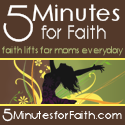In 1918, on the eleventh hour of the eleventh day in the eleventh month, the world rejoiced and celebrated. After four years of bitter war, an armistice was signed. The "war to end all wars" was over.
In 1921, an unknown World War I American soldier was buried in Arlington National Cemetery.
Similar ceremonies occurred earlier in England and France, where an unknown soldier was buried in each nation's highest place of honor (in England, Westminster Abbey; in France, the Arc de Triomphe).
These memorial gestures all took place on November 11, giving universal recognition to the celebrated ending of World War I fighting at 11 a.m..
Armistice Day officially received its name in America in 1926 through a Congressional resolution. It became a national holiday 12 years later by similar Congressional action. If the idealistic hope had been realized that World War I was "the War to end all Wars," November 11 might still be called Armistice Day. But only a few years after the holiday was proclaimed, war broke out in Europe.
Realizing that peace was equally preserved by veterans of WW II and Korea, Congress was requested to make this day an occasion to honor those who have served America in all wars. In 1954 President Eisenhower signed a bill proclaiming November 11 as Veterans Day.
A law passed in 1968 changed the national commemoration of Veterans Day to the fourth Monday in October. It soon became apparent, however, that November 11 was a date of historic significance to many Americans. Therefore, in 1978 Congress returned the observance to its traditional date.
 Every year on November 11, Canadians pause in a silent moment of remembrance for the men and women who have served, and continue to serve our country during times of war, conflict and peace.
Every year on November 11, Canadians pause in a silent moment of remembrance for the men and women who have served, and continue to serve our country during times of war, conflict and peace.We honour those who fought for Canada in the First World War (1914-1918), the Second World War (1939-1945), and the Korean War (1950-1953), as well as those who have served since then. More than 1,500,000 Canadians have served our country in this way, and more than 100,000 have died. They gave their lives and their futures so that we may live in peace.

In Flanders Fields
By: Lieutenant Colonel John McCrae, MD (1872-1918)
Canadian Army
IN FLANDERS FIELDS the poppies blow
Between the crosses row on row,
That mark our place; and in the sky
The larks, still bravely singing, fly
Scarce heard amid the guns below.
We are the Dead. Short days ago
We lived, felt dawn, saw sunset glow,
Loved and were loved, and now we lie
In Flanders fields.
Take up our quarrel with the foe:
To you from failing hands we throw
The torch; be yours to hold it high.
If ye break faith with us who die
We shall not sleep, though poppies grow
In Flanders fields.
Layout by Anne











3 comments:
itude for all of you past, or current Military members who sacrificed for our country, and for the families who sI just wanted to expressloved ones never made it home. Thanks for all you do.
Marvelous pages to remember our service men and women. Thank you for the inspiration - Wonderful work.
I really like all of the pics. Makes me have tears in my eyes. All of the history you described was interesting as well. Thank you for posting!
Post a Comment